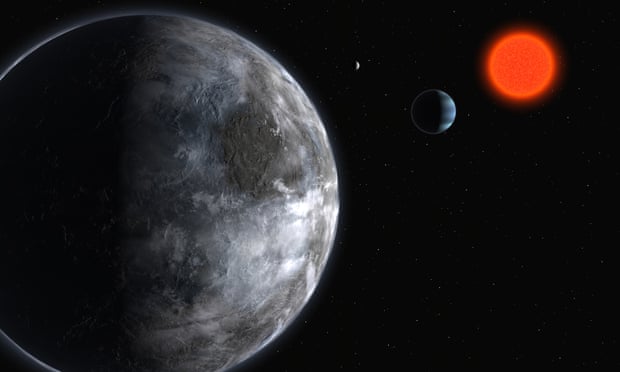 Second Contact by Mike Resnick
Second Contact by Mike ResnickMy rating: 3 of 5 stars
It looked like a no-brainer to defense attorney Major Maxwell Becker. A starship captain has gone a little crazy and killed two of his crewmen in cold blood. Just plead insanity, make sure they give his client a nice, comfortable, padded cell, and go skiing at Aspen. But the captain refuses to cop an insanity plea. He insists that the two crew members he killed were not humans, but aliens. That's his story, and he's sticking by it. So Becker reluctantly goes through the motions of trying to prove his case - and suddenly his witnesses start getting transferred or disappearing, and when he finally finds one he realizes there are holes in his story... and suddenly Becker is running for his life, hunted by every branch of the military. He can't figure it out: he's a loyal officer, he's just doing his job as a military attorney, he's never broken a law, there are no aliens: so why does everybody want him dead? Join Hugo- and Nebula-winning author Mike Resnick as he chronicles Becker's desperate attempt to learn the only thing that can save him: the truth.
I selected this book as a quick read, safe in the knowledge that most things by Mike Resnick I enjoy. I didn't know anything about the book, read no reviews or even a synopsis, and embarked on what I was assuming would be a quick journey and a rewarding story. I also assumed that the story fitted into Resnick's wonderful "Birthright" universe, but it doesn't, it's a completely stand alone novel. It has a quick storyline that isn't really all that sci-fi, other than it takes place in the near future and there is a large element of computer hacking goings on. I loved the general plot and the premise of alien contact and also liked the Grisham-style lawyer saga that is the vehicle for the storyline. The stand out of the book for me would have to be Jaimie, a very likeable criminal computer hacker who resolves to help the main character Max Becker on his quest for truth. What I believe let the story down was the way the the action meandered around a bit too much with describing exactly how the protagonists carry out their various acts of skulduggery. I got somewhat bored more than once and found myself losing concentration. As well, the technological details in this book are very dated, right back in the '80s with dial-up modems and such things, but it was written back then so it would've been rather cool at the time I imagine. The plot is reasonably deep and Resnick does a fine job of weaving it all together into an easily-read tapestry of words where the author confirms again to me that he is one of the best storytellers that I've read of any genre. This book is far from his top work, but it's fun I don't regret reading it one bit, but it wasn't all that rewarding like I'd hoped for at the beginning.
----- --- -------
View all my reviews



